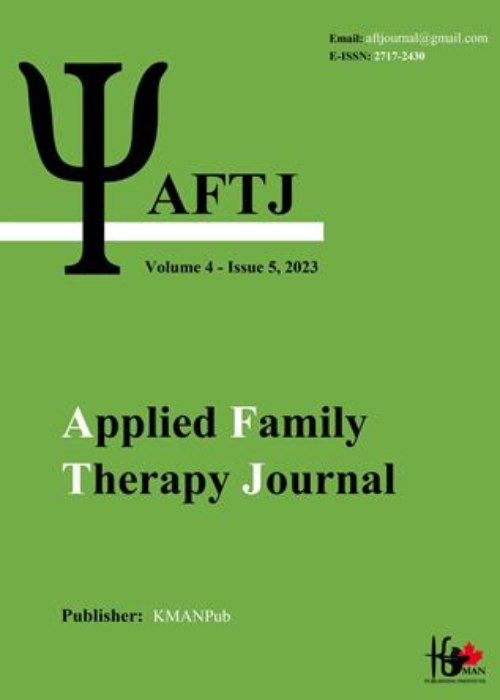Effectiveness of mindfulness-based stress reduction program on emotion regulation and obsessive-compulsive symptoms of children with obsessive-compulsive disorder
the purpose of this research was to investigate the effectiveness of mindfulness-based stress reduction program on emotion regulation and obsessive-compulsive symptoms of children with obsessive-compulsive disorder.
In terms of the objective, the current research was of an applied type, and in terms of the research design and method, it was a quasi-experimental design with a pre-test and post-test design with an experimental group and a control group and a three-month follow-up period. Therefore, the statistical population of the study included all children aged 6 to 11 years who were referred to psychotherapy and counseling centers in Tehran's 3rd district in 2022 for having obsessive-compulsive symptoms. Then, 40 people were selected by purposeful sampling and randomly assigned to an experimental group (20 people) and a control group (20 people). Finally, Alexander et al.'s (2012) mindfulness-based stress reduction program was administered to the experimental group. In order to collect data, the research tools of Gross and John (2003) emotion theory questionnaires and Goodman's algebraic obsession scale (1989) were used. In order to statistically analyze the data, frequency distribution tables were used in the descriptive part, and in the inferential part of the data analysis, mixed variance analysis with repeated measurements and Bonferroni's post hoc test and SPSS software version 26 were used.
The F value and the significance level of the obtained value were obtained in the variable of symptoms of obsessive-compulsive disorder (F = 12.22 and P = 0.001) and emotion regulation (F = 11.78 and P = 0.001). Therefore, it can be concluded that the independent variable (the effectiveness of the mindfulness-based stress reduction program) significantly changed the dependent variables (obsessive compulsive disorder symptoms and emotion regulation). This means that the changes made in the dependent variables were caused by the implementation of the effectiveness of the mindfulness-based stress reduction program on the members of the experimental group. Moreover, the results of the post-hoc test indicated the stability of the effectiveness of the therapy on the research variables.
Based on the available findings, it can be concluded that the stress reduction program based on mindfulness has been effective on emotion regulation and obsessive-compulsive symptoms of children with obsessive-compulsive disorder. Therefore, this program can be used in the treatment of children with obsessive-compulsive disorder.
- حق عضویت دریافتی صرف حمایت از نشریات عضو و نگهداری، تکمیل و توسعه مگیران میشود.
- پرداخت حق اشتراک و دانلود مقالات اجازه بازنشر آن در سایر رسانههای چاپی و دیجیتال را به کاربر نمیدهد.


